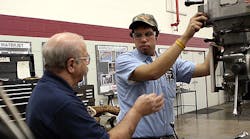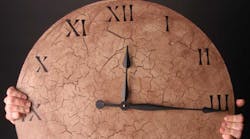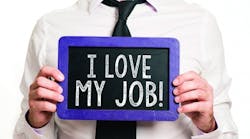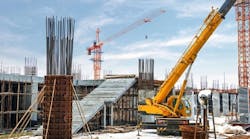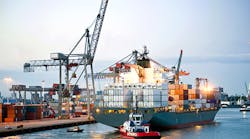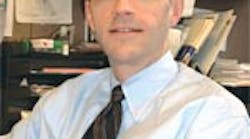In a column a few years ago I commented that I believe summer is the best season and July is the best month, and that with the right outlook and determination we could approach these days as an opportunity for a new beginning — especially if we find ourselves halfway through a lost year. That column elicited a surprising response from readers, setting me off on a continuing reflection about how the world around us influences our happiness. .
I still prefer the long, sunny days, but now it takes more than that to stir optimism in me. The world is more complex, and the satisfaction is more elusive. Surely, this will be a “lost” year for many of us, and a fresh start may seem impossible.
Among metalcasters the relationship between life and work is very strong: it’s more than an industry; it’s a community. To many of them there is a powerful sense of “loss”: lost jobs, lost customers, and lost businesses. In some places in Indiana and Wisconsin, for example, it seems that a way of life has been lost.
Pinning our hopes or disappointments to circumstances around us is a psychological reflex that isn’t supported by reason. If the calendar were a guide either to optimism or pessimism, we could look back now to the “enthusiasm” we shared in July or August 2008.
In fact, last summer the outlook was only marginally better than it is now. Energy prices were soaring, but we tried to look forward to new business opportunities in that trend. Proposed labor and environmental policies were unnerving. Commercial activities were falling under a growing shadow of regulatory, legislative, and administrative control, but we preferred to think of those as “stabilizing” moves, or “rescues.”
At that time we published a still-fascinating report about “The Capital Equipment Re-Investment Cycle,” which accurately framed an ongoing dilemma for metalcasters: over the course of several decades, changes in fiscal polices have shifted financial advantages decisively away from manufacturers, and toward consumers. This has also worked to erode domestic manufacturers’ presumed advantage over foreign competitors, hastening the emergence of a global economy which presents new challenges in terms of production cost.
It was not a “mood” piece, but its insights supported the grim outlook that has defined manufacturers’ (particularly metalcasters’) gloom since the 1970s. It assembled decades of figures, and concluded that the long trend was due for a predictable, though slow, reversal. In that season of uncertainty, then, we could look to that report for some reassurance.
Yet we’re still here, in another slow summer with not much on the calendar to lift our expectations for better times ahead. In January we hoped a new year and a new administration would invigorate us. Some people believed that federal “stimulus” spending would trigger the capitalequipment investment re-investment cycle (and some do still.)
Some people see opportunities for metalcasting in emerging markets like wind energy, medical and surgical equipment, or high-tech instruments. There are even analysts who believe our economic decline has reached its bottom, and revival is already underway.
Believe it, if that’s your inclination, but find the facts to support it. Trying to time a revival, or a mood change is tricky, because so much detail remains unknown. The world is too complex to expect certainty, so narrow your concerns.
Start by mastering your own situation. Know your problem; no one else understands it as well as you. Don’t fall for some expert’s analysis, and don’t be unnerved by other people’s dire predictions. They have their own problems, and expectations.
Resist universal solutions (and federal ones, too, obviously) that dictate the course of your fresh start. Define the terms of your own revival.
Once the panic and prescriptions have subsided, perhaps more of us will realize we’re responsible for our own progress. In a complex world, that’s a ray of hope.
